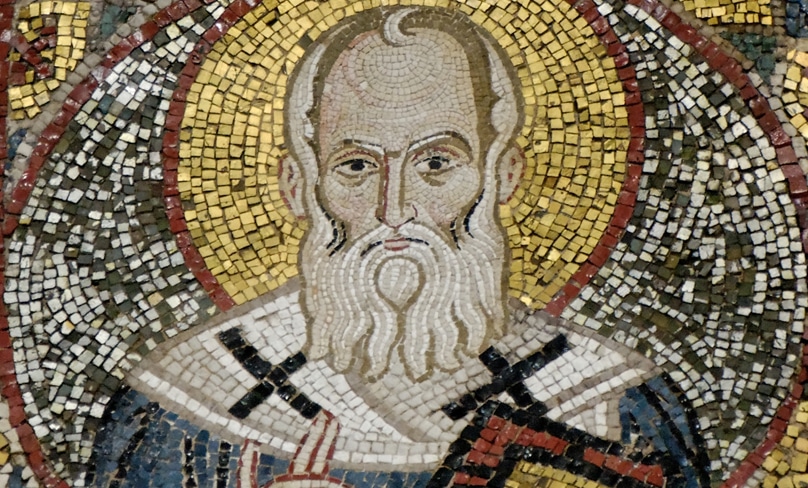
St Gregory of Nazianzus, the fourth-century pillar of orthodoxy and doctor of the Church, knew better than most the trials that come with responsibility. St Gregory was a gentleman, poet and theologian who rather reluctantly consented to be ordained to the episcopate after a sustained campaign of bullying by his father Gregory the Elder (also a Bishop, and married besides) and his friend St Basil the Great.
During his tumultuous episcopal career he bumbled through various intrigues, was betrayed by close friends and used as a political pawn by others, and found himself – more because of his immense learning and rhetorical stylings than political acumen – raised to the position first of Archbishop of Constantinople, and then to the presidency of the Second Ecumenical Council in 381.
When the validity of St Gregory’s presidency was challenged and he became unpopular, his ill-health and lack of confidence in political matters led him to chuck one of the greatest ever tantrums in the Church’s history.
“Let me be as the Prophet Jonah!” St Gregory said. “I was responsible for the storm, but I would sacrifice myself for the salvation of the ship. Seize me and throw me… I was not happy when I ascended the throne, and gladly would I descend it.”
“For my part, if I am to write the truth, my inclination is to avoid all assemblies of bishops, because I have never seen any Council come to a good end …”
To boil this Byzantine rhetoric down to plain English: “You can’t sack me! I quit!” St Gregory left Constantinople and returned to the backwater of Nazianzus and comparative solitude. In a letter reflecting on councils, he wrote:
“For my part, if I am to write the truth, my inclination is to avoid all assemblies of bishops, because I have never seen any Council come to a good end, nor turn out to be a solution of evils. On the contrary, it usually increases them.
“You always find there love of contention and love of power (I hope you will not think me a bore, for writing like this), which beggar description; and, while sitting in judgment on others, a man might well be convicted of ill-doing himself long before he should put down the ill-doings of his opponents.”

In the context of our own Plenary Council, perhaps St Gregory’s unhappy reflections give credence to the Church’s pessimists: maybe the whole thing was a waste of time from the very beginning after all, a vehicle for contention and judgment of others.
The truth is that St Gregory, among the greatest theologians the Church has ever produced, found his personality did not equip him to fulfil the demands of authority. His resignation and bitter musings on Councils sprung as much from his own inability to perform as it did from the objective evils of politics. Even one as saintly as Gregory could not help but give in to his resentments.
In the latest outburst from the Australasian Catholic Coalition for Church Reform (ACCCR), we see something of the same phenomenon. The agenda of “pure reform” pushed by the Plenary’s staunchest advocates is now reaching its limit, as the Second Assembly approaches.
The unpopularity and untenable nature of the most radical blue-sky ideas from the First Assembly means they will not proceed. Realistic proposals must be voted upon. This is a huge disappointment to those who thought the Plenary Council would be the chance to totally remake the Australian Church according to their own dreams.
“We were not happy when we asked for the Plenary Council, and gladly we would call for it to be stopped!”
So for the reform groups who have been the loudest and most persistent faction during the Plenary, somebody must be blamed: conservatives and “reactionaries” who have used the individual proposals to “manipulate” the Plenary. Rather than accept that synodality will also have its limits and compromises, the toys are now being launched en masse out of the pram. “You can’t make us compromise! We quit!”
Reform groups have spent years playing this game: heaping opprobrium on the ordained ministers of the Church while complaining of their own powerlessness and exclusion, and then blaming clericalism for the substantive failure and unpopularity of their agenda. In reality, as many in the Church will tell you, clericalists and reactionaries have become exceedingly rare, but liberals are easily found at all levels of the Church.
“We were not happy when we asked for the Plenary Council, and gladly we would call for it to be stopped!” the reformers say. As the process draws to a conclusion the resentments, tantrums, accusations and sheer white noise will only increase. Every orthodox Catholic who remains engaged with the Council through until its conclusion does the Church a service. St Gregory, who preferred peace and quiet to the politicking of the Church’s Councils, pray for us who remain in the contest!
Related:
